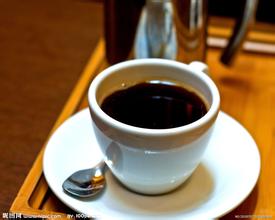Almond sweet-smelling sun Yega Shifeiwaka Coffee Flavor description characteristics of Grinding degree introduction of varieties
In December 1994, the Constitution of the Federal Democratic Republic of Ethiopia was formulated. According to the Constitution, Ethiopia will implement a federal system and a parliamentary cabinet system after the general election for a term of five years. After the national election in May 1995, the Federal Democratic Republic of Ethiopia was established on August 22, and Meles became prime minister in her capacity as chairman of the majority party of the people's House of Representatives. On May 14, 2000, Ethiopia held a national election, and EGF defeated other opposition parties by an absolute majority to stay in power. In October, the new federal parliament and government were established, and the speakers of both houses and Prime Minister Meles were re-elected, and the original cabinet also remained in office with the approval of the parliament. In October 2001, May readjusted government institutions and reshuffled the Cabinet, adding the Ministry of Youth, Sports and Culture and the Ministry of Taxation, and forming a new cabinet of 18 ministers. In February 1977, Lieutenant Colonel Mengistu Hale Maryam (MENGISTU HAILE MARIAM) launched a military coup and served as Chairman of the "interim military Administration Council" and head of State. In 1979, the Ethiopian Labor people's Party Organizing Committee, mainly composed of soldiers, was established to implement an one-party system. In 1984, the Ethiopian Workers' Party was formed according to the Soviet Communist Party model. In September 1987, Mengistu announced the dissolution of the "interim military Administrative Council", the end of military rule, the establishment of the "people's Democratic Republic of Ethiopia" and the establishment of a new parliament, with Mengistu as president and head of government.
Although the Ethiopian Yirgacheffe coffee is petite, it is gentle and delicate and sweet. As the hometown of coffee, thousands of years of planting history and processing tradition in Ethiopia have created high-quality washed Arabica beans. Light baked with unique sweet aromas of lemon, flowers and honey, soft acidity and citrus flavors, fresh and bright on the palate. No milk or sugar, let the rich texture and unique soft flower scent brush your taste buds, leaving an endless aftertaste.
Planting:
Coffee trees are mostly planted in farmers' own backyard or mixed with other crops in the field, the yield per household is not much, it is a typical rural coffee. These mountain villages are foggy, like spring all year round, with a gentle breeze in summer, cool but not hot, rain but not damp, and no cold damage in winter, giving birth to a unique regional flavor of citrus and flowers.
Taste:
The so-called "Yejia Snow Flavor" refers to the strong aromas of jasmine, lemon, peach, almond and tea. Tasting experience has only one sentence: coffee entrance, flowers in full bloom! Just like a flower touches the comfort of taste buds and olfactory cells in the nasal cavity. In addition to the fragrance of the flowers, the delicate and mellow thickness (body) is like a silk massage in the mouth.

Important Notice :
前街咖啡 FrontStreet Coffee has moved to new addredd:
FrontStreet Coffee Address: 315,Donghua East Road,GuangZhou
Tel:020 38364473
- Prev

Introduction to the overall soft flavor description of Salvadoran Himalayan coffee and the characteristics of grinding degree
The only advantage brought by the Salvadoran state is that the farmers' fields are barren and fail to catch up with the most popular Katimo exposure train in the past two decades, thus preserving the ancient varieties of bourbon and Tibica, that is to say, El Salvador still uses the most traditional shading methods of planting, which is of positive significance to the aroma of coffee. In 2005, the Salvadoran hybrid Pacamara was held in coe Yaowu.
- Next

Bitter and fragrant Guatemala Antigua Flower God Coffee Grinding characteristics description of taste and flavor in producing area
Deep bitter and fragrant, taste good highland coffee mellow and with a good sour taste, well received, is the best material for mixed coffee. Coffee variety: Arabica (Arabica): accounts for 85% of total coffee production, including Brazil, Colombia, Guatemala, Ethiopia and so on. Beans are turquoise, beans are thin, have special aroma and sweet acid, and other coffee
Related
- Detailed explanation of Jadeite planting Land in Panamanian Jadeite Manor introduction to the grading system of Jadeite competitive bidding, Red bid, Green bid and Rose Summer
- Story of Coffee planting in Brenka region of Costa Rica Stonehenge Manor anaerobic heavy honey treatment of flavor mouth
- What's on the barrel of Blue Mountain Coffee beans?
- Can American coffee also pull flowers? How to use hot American style to pull out a good-looking pattern?
- Can you make a cold extract with coffee beans? What is the right proportion for cold-extracted coffee formula?
- Indonesian PWN Gold Mandrine Coffee Origin Features Flavor How to Chong? Mandolin coffee is American.
- A brief introduction to the flavor characteristics of Brazilian yellow bourbon coffee beans
- What is the effect of different water quality on the flavor of cold-extracted coffee? What kind of water is best for brewing coffee?
- Why do you think of Rose Summer whenever you mention Panamanian coffee?
- Introduction to the characteristics of authentic blue mountain coffee bean producing areas? What is the CIB Coffee Authority in Jamaica?

